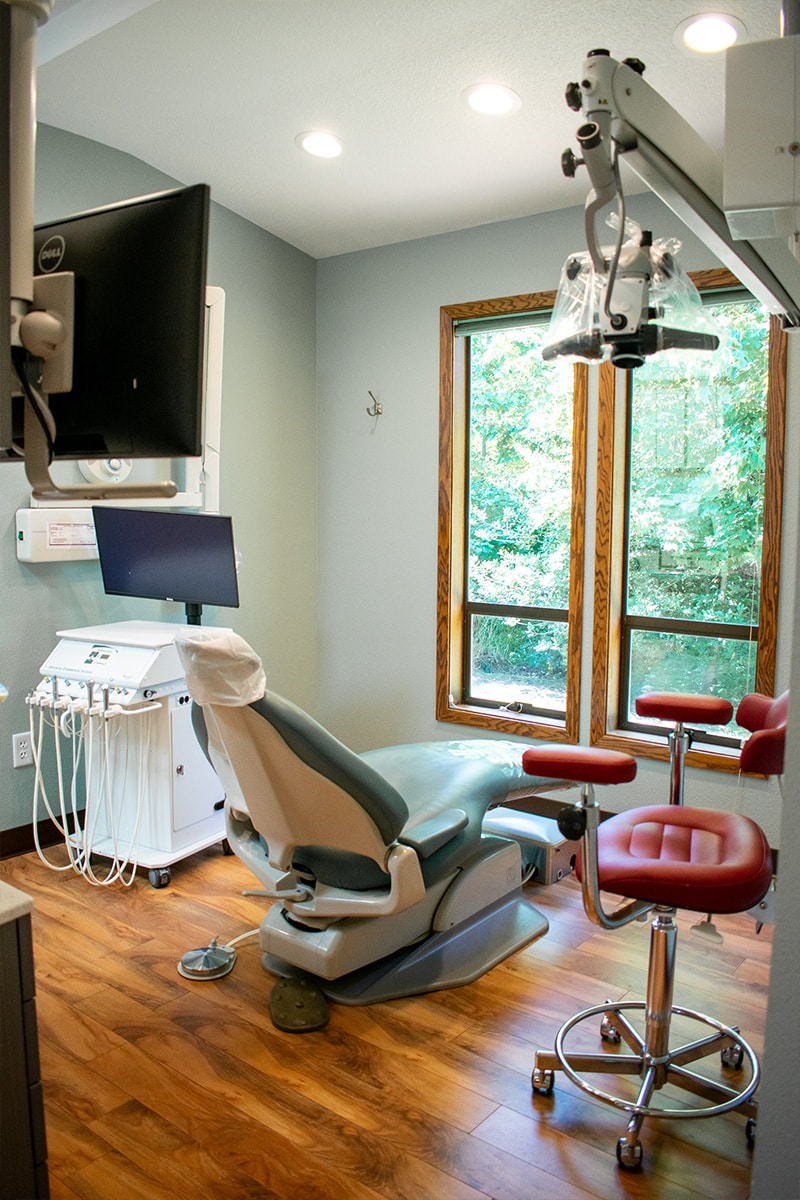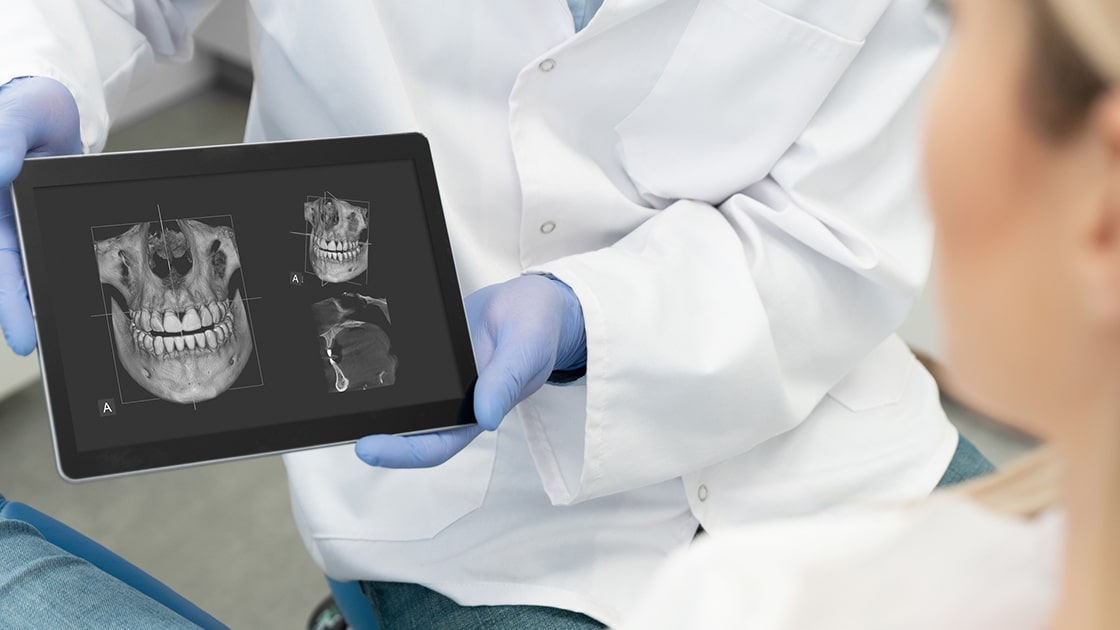
Our primary goal is to save your natural teeth whenever possible.
Our practice specializes in Endodontics, commonly referred to as root canal therapy. Endodontics is the treatment of the pulp and surrounding tissues of a tooth.
Root canals are most often necessary when decay has reached the nerve of the tooth or the tooth has become infected. When root canal therapy is performed, the pulp chamber of the tooth is removed and then filled with a suitable filling material. The number of canals and anatomy of a tooth can vary. People have anywhere from 1 to 4 canals in a tooth. Extra canals may branch out and are called “accessory canals.” The word “endo” comes from the Greek language and means “inside” or within. Endodontists work with the “inside” of a tooth.
We will strive to make your visit as pleasant as possible and look forward to meeting you. Each of our treatment areas is equipped with flat screen monitors. These monitors give our patient’s the ability to better understand treatment during their consultation visit using visual aids and images of the affected tooth.
Root Canal Treatment
In our office we specialize in root canals, and utilize the latest technology and techniques to make treatment more convenient and comfortable. The length of time needed to complete the procedure is variable but it is usually possible to complete your root canal in one or two appointments.
Each of our treatment areas is equipped with flat screen monitors. These monitors give our patient’s the ability to better understand treatment during their consultation visit using visual aids and images of the affected tooth. We will strive to make your visit as pleasant as possible and look forward to meeting you.
Endodontic Surgery (Apicoectomy)
Sometimes it may become necessary to remove the infected root tips or apex and the nearby tissue to preserve the health of the surrounding teeth and gums. Known as an apical surgery or an apicoectomy, we remove an infection around the apex of the tooth and then seal the root’s tip to help prevent new infections.
Pulp Treatment (aka pulpotomy/pulpectomy/baby root canals)
The blood vessels, nerves, and tissue that keep a tooth healthy and alive are located in the tooth’s pulp, which is protected by the outer enamel and tooth structure. Sometimes the pulp becomes infected and needs to be removed with a pulpotomy. Because this procedure is often performed on deciduous (baby) teeth, it is sometimes referred to as a baby root canal.
Dental Trauma
Traumatic injuries such as fractured, cracked, or displaced teeth can result in the need for dental treatment. Dental trauma care requires prompt medical evaluation and treatment. Treatments may include a splint, medication, a root canal, or other procedures. Once treated, we will monitor your tooth to ensure it is healing properly and that any injuries or infections are quickly resolved.
CBCT and Endodontics
Utilizing 3D technology creates more detailed and higher-resolution images with less radiation exposure than a traditional full-mouth x-ray. This quick and painless technology helps our doctors recommend the most conservative treatment for a successful outcome and also help patients avoid costly exploratory procedures and possible unpredictable treatments.
Sedation
Local anesthesia refers to a topical and/or injected anesthetic that will affect only the targeted area for a brief period of time to minimize or eliminate sensation or pain in that specific “localized” area during a dental procedure.
Conscious Oral Sedation is an alternative minimal sedation that allows you to remain awake but relaxed. For people who have a fear of dental procedures, conscious sedation may take away some of the anxiety. The doctor will combine the use of oral sedation along with a local anesthetic so you have little to no discomfort. You should plan to have someone bring you to the appointment and be available to drive you home following treatment.
Looking for an endodontist in the








